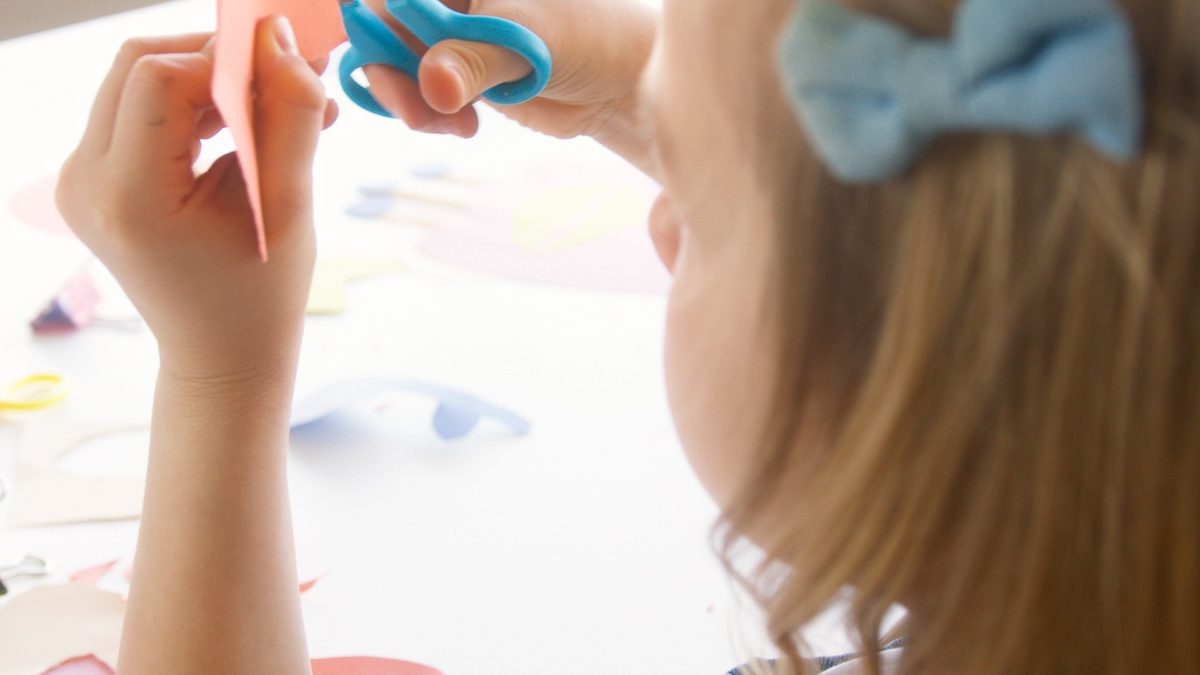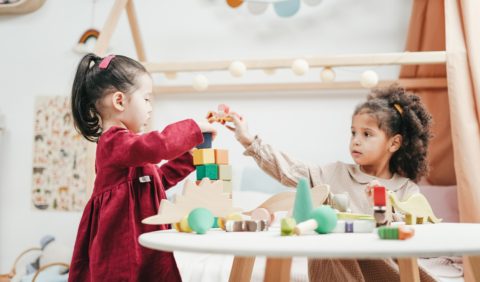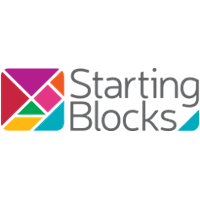
Why Kindergarten matters
Our brains develop rapidly during the first few years of life
The first five years of a child’s life are crucial for their neurodevelopment, health and growth.
So it should come as no surprise that the impressions we make on them during this period have lifelong consequences.
Involving children in an environment where they have the opportunity to develop their own thoughts and ideas, guided by qualified Teachers inspires their growing spirit of inquiry and gives them the tools to thrive.
The ages between three and five are some of the most exciting years of a child’s growth.
Moving through these years children’s innate curiosity begins to flourish and with that comes a barrage of questions, stories and budding friendships.
In these years children learn thousands of new words, start to get in touch with their emotions and delve into imaginary play.
An engaging atmosphere will embrace these milestones to capture children’s attention and build on their emerging skills.
Every child is different
Quality Kindergarten programs, such as that led by teachers at Nido Early School, are structured to allow them to use their own unique learning language of exploration.
Children are naturally curious, and the encouragement of this in a safe environment lays the building blocks for all future lifelong learning.
These self-led discoveries are overseen and guided by the teacher, who observes the child’s interests and suggests aspects that might further pique their interest, so honing their environmental understanding, cultural identity, fine and gross motor skills and more.
Encourages a lifelong love of learning
Through the careful scaffolding of such child-led learning, Nido’s early childhood educators create a bespoke learning experience for each of their charges.
This is wholly designed to create positive associations with learning, meaning that when the child thinks of school, they consider it an enjoyable experience of working hard through play.
In short, children develop a true passion for learning – something that remains with them throughout their life.
What does quality mean in Kindergarten?
Choosing a kindergarten is undoubtedly a big decision. Ensuring the right environment for your child to thrive means looking out for some choice elements.
- Is the teacher qualified?
Look for a service that has qualified professionals leading the Kindergarten Room. Early Childhood Teachers (ECTs) and suitably trained educators have the experience necessary to provide carefully crafted, bespoke education specifically tailored to the ages of 0-5.
This should focus on open-ended learning experiences using purposeful, high-quality learning resources designed to teach valuable 21st century competencies, including numeracy and literacy, as well as vital social and emotional skills.
During their studies, ECTs and early childhood educators learn about children’s brain development, behavioural development and attachment theories, teaching and learning styles, children’s advocacy, educational leadership and mentoring along with a myriad of other specialties tailored to those crucial early learning years.
Such professionals meet all state and national professional development guidelines, meaning that they are constantly learning and evolving themselves as educators so that they can bring the most up to date, evidence based research into their classrooms.
- Who chooses the curriculum?
Pre-schoolers become very passionate about their chosen subjects – but if you have ever had a conversation with a dinosaur-obsessed 4 year old then you already know that. Children who are allowed to explore these interests become more engaged in their learning.
A great Kindergarten program will use the children’s interests as a platform to extend into the various facets of learning. Counting the spikes on a Stegosaurus is fantastic numeracy practice, while stomping like an angry dinosaur can help children understand and gauge their emotions. There are no limits to what an outstanding teacher can implement when children are given the chance to be a part of the planning.
Making each day count
Preschool and Kindergarten programs give children a profound and lifelong advantage. Every day gives them more opportunities to play, learn and grow. The latest research (detailed in this UNICEF report) provides unequivocal evidence that children who’ve benefitted from such early learning are more school-ready than those who haven’t been exposed to such an environment.
- Children who attend pre-school regularly benefit from the development of essential social and emotional skills: Curriculum helps to teach children to identify and regulate their emotions and behaviours and develop resilience.
- Active kindergarteners grasp math, literacy and investigation skills: Children exploring these academic areas through fun and engaging experiences in order to teach children to challenge, question and problem solve.
- Empowered children are more independent and self-reliant: Being away from parents/caregivers during the early years is, naturally, a nervous time for both parties. Honing independence is a life skill, and the learning journey is best-travelled alongside an adult who ensures safety and security, as well as promoting independent actions. By encouraging natural curiosity to explore subjects that interest them, early child educators help children build this essential self-confidence.
- Children who love learning are ready and excited for school: An approach that allows children to guide their own learning, which provides incomparable learning experiences and teaches a lifelong love of learning. With architecturally-designed learning spaces, Nido schools promote the importance of the ‘environment as the third teacher’ – a crucial element of the Reggio Emilia philosophy that all our centres follow. The skills developed in these early years build a firm foundation from which the individual can apply to every learning context throughout the rest of their life.
Continuing the learning
Outside of school hours there are plenty of ways to continue your child’s development at home.
- Cook Together: Giving children access to real world materials- like a butter knife, some lettuce and a chopping board- is a great way to teach children about the process that goes on behind meal times. Children can learn all about measurement and process while they use their fine motor skills to hold, chop, stir and pour. TIP: Dealing with a picky eater? Engaging children in the process of creating a meal gives them a sense of pride and they will be more inclined to want to eat the fruits of their own labour.
- Stop and Smell the Roses: Go for a walk and see what you can find. When you find a flower or a leaf, question your child about how it looks, smells and feels. Speak to your child to expand their vocabulary, encourage them to really feel the “velvety” petals or pick up the “bumpy” stick. When children can experience the sensation they are more likely to make connections between the feeling and the phrase.
- Listen to music: Simply listening to music in the car is an effective way to teach children about speed, tempo and beat. By clapping along children begin to experience rhythm and will intuitively pick up on patterns within the song. TIP: (This would be a good spot to have a podcast or a partnership mentioned)
- Check in on their feelings: The rollercoaster ride of regulating emotions is hard enough as an adult, but imagine being 4 and not comprehend why you’re feeling this way. Help your child to manage their emotions by checking in on them throughout the day and teaching them the basics of regulating their moods. You could say, “I can see you’re feeling sad, what would you like to do that will make you feel happy again?” Give them suggestions about their favourite things! Soon enough, children begin to be able to do this on their own and redirect themselves into something they enjoy.
Questions to ask on a Kindergarten tour
When choosing a Kindergarten, keep in mind what is right for you, but use our handy checklist to make sure you are choosing a quality service.
- What are the teachers’ qualifications? Remember to look for an Early Childhood Teacher
- How do you develop your curriculum? Check to see that the program is designed to accommodate each individual child’s interests.
- What is the community like? You and your family will spend a lot of time at your kindergarten, so make sure it’s somewhere that you feel comfortable
- Can you tell me about the service and your philosophy? If a service philosophy doesn’t align with your own values then it’s unlikely to be a good fit. Look for a place that will value your child in the same way you do.
- Why should I choose you? Look out for unique opportunities such as extra-curricular activities, community participation and family events.






